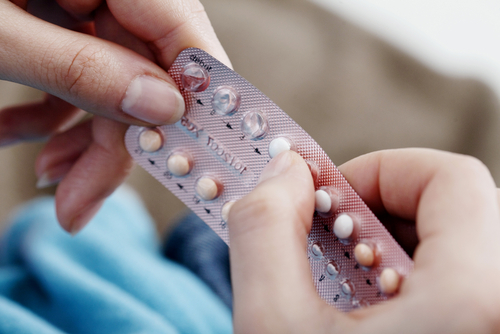 A group of researchers from the Fred Hutchinson Cancer Research Center in Seattle has discovered that women who are taking certain formulations of birth control pills have an increased risk of breast cancer when compared to those not using oral contraceptives.
A group of researchers from the Fred Hutchinson Cancer Research Center in Seattle has discovered that women who are taking certain formulations of birth control pills have an increased risk of breast cancer when compared to those not using oral contraceptives.
Studies done in the past have shown that oral contraceptives could slightly contribute to a higher risk of breast cancer. However, the majority of such studies relied on self-reported use and did not examine contemporary oral contraceptive formulations.
The results of the study, published in the Cancer Research journal and entitled “Recent Oral Contraceptive Use by Formulation and Breast Cancer Risk among Women 20 to 49 Years of Age”, analyzed birth control prescription records from a large database of women enrolled in Group Health Cooperative.
A total of 1,102 American women aged 20 to 49 years and diagnosed with invasive breast cancer from 1990 to 2009 was analyzed and compared with 21,952 women who remained cancer-free.
The team observed that when compared to the control group, women who had used birth control pills in the previous year had an increased 50% or higher risk of developing breast cancer than women who had either never used the drugs or had used them in the past.
Additionally, birth control pills that contained high-dose estrogen (50 micrograms or more), and those containing moderate–dose estrogen (30 to 35 micrograms) enhanced breast cancer risk by 3 and 1.6 fold, respectively. However, those that contained low-dose estrogen (20 micrograms) did not increase breast cancer risk.
Even though the researchers did not disclose any brand names of pills associated with a higher risk, they noted that pills containing ethynodiol diacetate and triphasic pills containing norethindrone acetate, two steroidal progestins, were reported as problematic.
Moreover, the majority (78%) of the cancer-free women who took birth control pills in the past year had received prescriptions for moderate-dose estrogen compared with 24% who got the low-dose ones.
These results however, do not mean women should stop taking birth control pills without talking to a health care provider first. The majority of women don’t take high-risk pills, and according to these results, low-dose estrogen poses no increased risk, said Dr. Owen Montgomery, a spokesman for the American College of Obstetricians and Gynecologists in a Fred Hutchinson Cancer Research Center press release.
“Our study results need to be interpreted cautiously. This is an important contribution, but it is not yet at the scale where it is changing any clinical recommendations,” added study senior author Dr. Elisabeth F. Beaber in the press release.
Sprintec 28, one of the most prescribed birth control pills in the US, includes norgestimate and ethinyl estradiol, which according to the study raised the risk of cancer by 20%. Furthermore, Loestrin 24 Fe, the fifth most-prescribed pill, contains norethindrone acetate, which increased breast cancer risk by 60%.
Although significant, the authors noted these results would need to be replicated before they can be applied in the way women use birth control.

